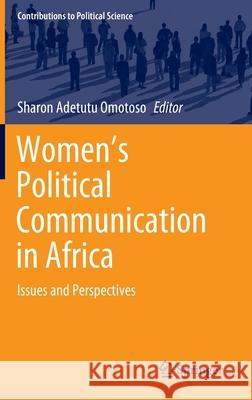Women's Political Communication in Africa: Issues and Perspectives » książka
topmenu
Women's Political Communication in Africa: Issues and Perspectives
ISBN-13: 9783030428266 / Angielski / Twarda / 2020 / 172 str.
Women's Political Communication in Africa: Issues and Perspectives
ISBN-13: 9783030428266 / Angielski / Twarda / 2020 / 172 str.
cena 402,53
(netto: 383,36 VAT: 5%)
Najniższa cena z 30 dni: 385,52
(netto: 383,36 VAT: 5%)
Najniższa cena z 30 dni: 385,52
Termin realizacji zamówienia:
ok. 16-18 dni roboczych.
ok. 16-18 dni roboczych.
Darmowa dostawa!
Kategorie BISAC:
Wydawca:
Springer
Seria wydawnicza:
Język:
Angielski
ISBN-13:
9783030428266
Rok wydania:
2020
Wydanie:
2020
Numer serii:
000471413
Ilość stron:
172
Waga:
0.44 kg
Wymiary:
23.39 x 15.6 x 1.27
Oprawa:
Twarda
Wolumenów:
01
Dodatkowe informacje:
Wydanie ilustrowane











